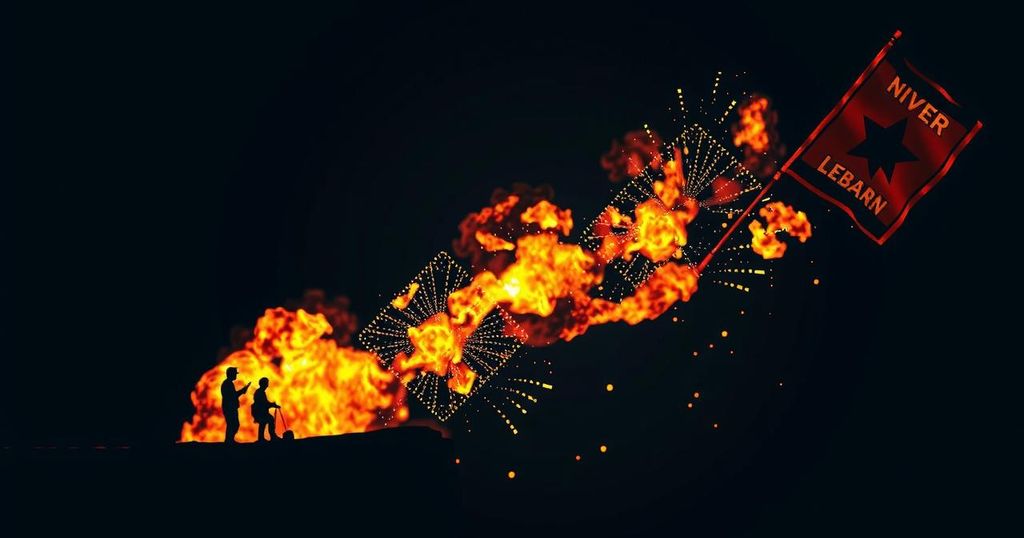The fragile ceasefire between Israel and Hezbollah faces significant strain following recent violent exchanges. Hezbollah’s mortar strikes were met with retaliatory Israeli airstrikes, resulting in civilian casualties. Both sides continue to accuse one another of violations of the ceasefire agreement, underscoring the complexity of the conflict and the importance of international monitoring efforts for implementation and compliance.
The recent hostilities between Israel and Hezbollah are straining the tenuous ceasefire established just a week ago. Following Hezbollah’s mortar attack on an Israeli military outpost, Israel responded with a significant airstrike offensive that resulted in casualties, including nine fatalities in southern Lebanon. Analysts have remarked that the violence marks a critical point for the ceasefire’s stability, illuminating the ongoing cycles of aggression between the two sides.
The Israeli military’s strikes were aimed at Hezbollah forces, but the government asserts its commitment to the ceasefire agreement, which mandates Israel to refrain from offensive actions while Lebanon is to prevent Hezbollah from launching attacks. Despite this, both parties accuse one another of violating the terms of the ceasefire, as tensions rise with each incident of violence.
The exchange began when Hezbollah, citing previous Israeli aggressions, launched a mortar assault, which they labelled a defensive maneuver after a series of Israeli airstrikes caused civilian casualties. Hezbollah emphasized that appeals to international authorities to address these incursions had yielded no results. Meanwhile, Israeli officials maintain that their military operations were justified as responses to Hezbollah’s actions, further complicating the conflict’s resolution.
As both sides intensify their military rhetoric, the situation calls for the activation of an international monitoring committee responsible for overseeing ceasefire compliance. This entity, co-chaired by high-profile international representatives, is expected to facilitate communication between Lebanon and Israel while ensuring accountability for any breaches of the agreement. A member of Lebanon’s parliament emphasized that Hezbollah’s actions may serve as reminders to Israel that they remain capable of retaliating against any perceived violations.
The ongoing conflict between Israel and Hezbollah has deep historical roots, stemming from political, territorial, and ideological disputes. The recent ceasefire was brokered with the assistance of the United States and France, underscoring the urgency for diplomatic interventions in the face of escalating hostilities. The ceasefire agreement aimed to mitigate violence and establish a framework for stability, but both factions have a history of breaches, raising concerns about the efficacy of such accords in the region.
The recent exchanges between Israel and Hezbollah highlight a worrying trend of escalating violence that could jeopardize the fragile ceasefire. Both parties remain entrenched in their positions, complicating the resolution of the conflict. The effectiveness of the international monitoring committee will be crucial in ensuring compliance with the ceasefire terms and in preventing further incidents. Diplomacy will play a key role moving forward, as both sides navigate the precarious balance between military action and political engagement.
Original Source: www.bbc.co.uk






